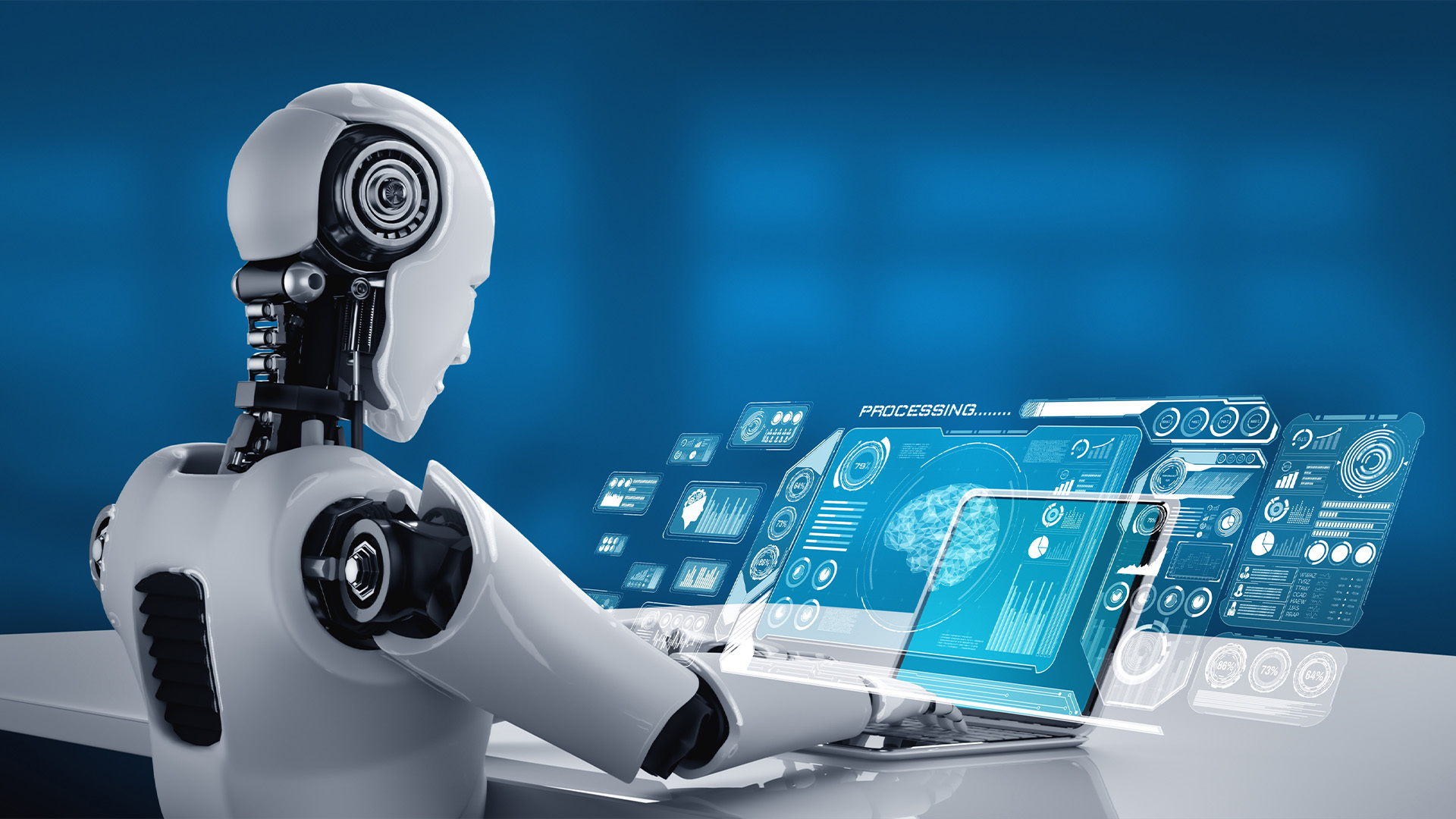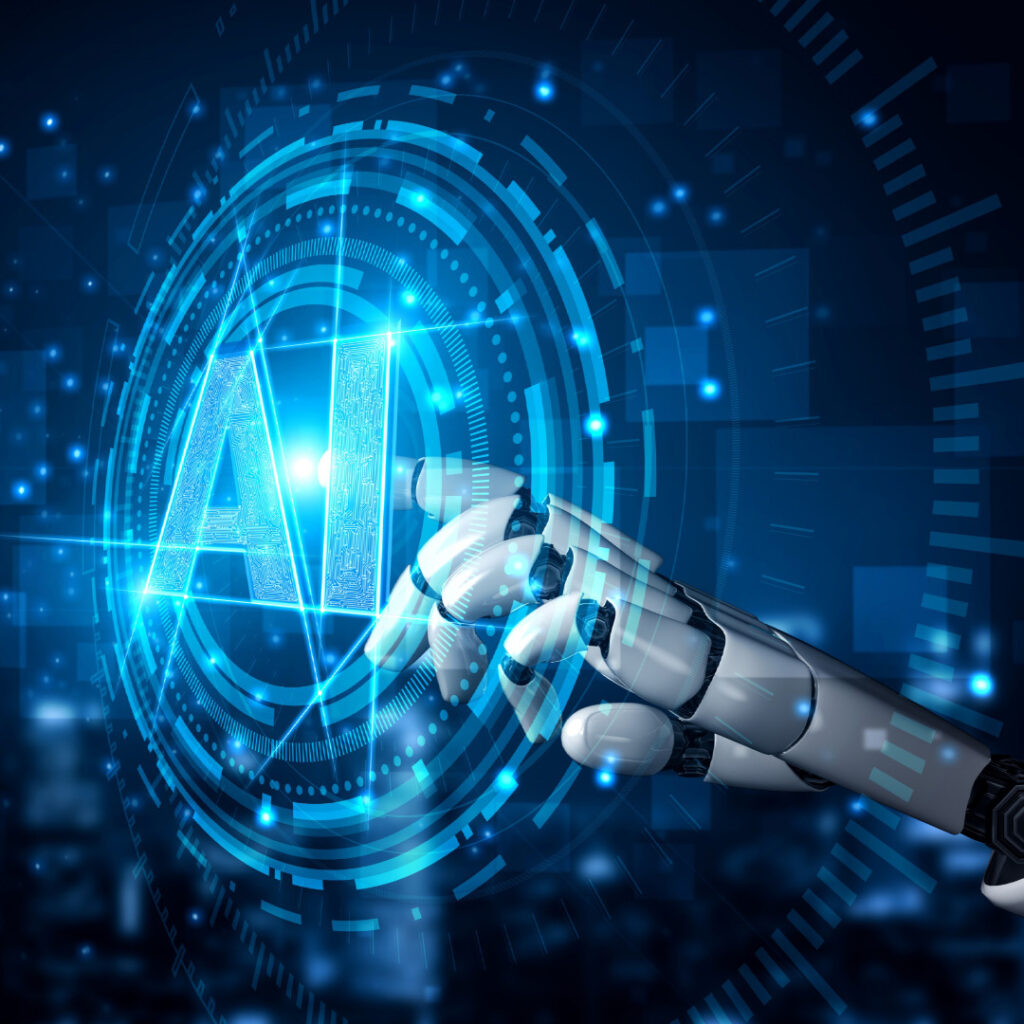The Transformative Power of AI and Machine Learning: Shaping the Future
Technology

Artificial intelligence and machine learning fields have evolved rapidly, capturing and captivating the world with their potential to revolutionize various industries. From healthcare to finance, transportation to entertainment, AI and machine learning technologies are reshaping how we live and work.
Artificial intelligence (AI) generally refers to processes and algorithms that simulate human intelligence, including mimicking cognitive functions such as perception, learning, and problem-solving. Machine learning and deep learning (DL) are subsets of AI.

Specific practical applications of AI include modern web search engines. These personal assistant programs understand spoken language, self-driving vehicles, and recommendation engines, such as those used by Spotify and Netflix.
Machine learning (ML) is a subset of AI that falls within the “limited memory” category in which the AI (machine) can learn and develop over time. Machine learning algorithms can make predictions, classify information, and automate complex processes by analyzing vast amounts of data and detecting patterns.
There are various machine learning algorithms, with the three primary types being supervised learning, unsupervised learning, and reinforcement learning.
Enhancing Efficiency and Automation
One of the most significant advantages of AI and machine learning is their ability to enhance efficiency and automate repetitive tasks. AI can be very helpful in improving the data analyzing speed and also increasing the reporting time. By automating manual processes, businesses can significantly increase productivity and free up human resources for more creative and strategic endeavors.

AI and machine learning have immense potential to revolutionize healthcare, from diagnosis to treatment. One of the most significant ways AI impacts healthcare is by developing diagnostic tools. Machine learning algorithms can analyze medical images, such as CT scans and X-rays, with accuracy that rivals human radiologists.
This not only improves the accuracy of diagnoses but also allows for earlier detection of diseases, leading to better patient outcomes. Another area where AI is making a significant impact is in the field of precision medicine. By analyzing vast amounts of patient data, AI algorithms can identify patterns and predict which treatments will be most effective for individual patients. This personalized approach to medicine is expected to lead to more effective treatments and better patient outcomes.
AI algorithms analyze user behavior and preferences to provide individuals with relevant and engaging content; it can vary from personalized recommendations on streaming platforms to tailored marketing campaigns. In e-commerce, machine learning enables predictive analytics to understand customer buying patterns. Customized learning platforms use AI to adapt to students’ educational content and individual needs, like each student’s learning speed, exam patterns, etc.


Artificial Intelligence (AI) is one of the best technologies supporting the transportation industry in many ways. It was a proven technology that transformed the transportation sector tremendously. In addition to making our lives easier, Artificial intelligence technology helps to make all modes of human transportation systems safer and more efficient.
Autonomous vehicles powered by AI algorithms can navigate roads, reduce accidents, and optimize traffic flow. Machine learning algorithms are being used to predict demand and optimize logistics. AI-powered Systems can forecast vehicle maintenance with the help of smart dashboards and sensors and route optimization.
AI ML models can analyze large datasets to optimize energy consumption, reduce waste, and enhance resource management. Machine learning algorithms can assist in predicting weather patterns and optimizing renewable energy generation.
They can also be used to aid in environmental monitoring, detecting pollution, and supporting conservation efforts. But better regulatory bodies need to be set up to oversee the development of AI, as its development will strongly influence the future of humanity.


The term “ethical AI” denotes creating and implementing AI systems that are transparent, accountable, and aligned with human values and rights. As AI and machine learning continue to advance, addressing ethical considerations and ensuring responsible development is crucial. Fairness and minimized bias in data are critical to making AI trustworthy.
Issues such as bias in algorithms, data privacy, and job displacement need to be carefully navigated. It is essential to utilize models such as decision trees and rule-based systems to prioritize fundamental rights and ethical considerations in AI decision-making. Determining what constitutes fundamental rights and the moral standards by which they are held is a complex and ongoing debate.
The AIML implementation often needs more or low-quality data, outdated infrastructure, integrating it into different systems, lack of proper training of the AIML models, etc. The ethical use of AI, privacy protection, and responsible data handling are paramount. Additionally, ensuring that AI systems are unbiased and fair requires continuous monitoring and improvement.
Despite the challenges, the opportunities and advantages of AIML are way too big to ignore; thus, organizations are addressing and solving these challenges to unlock the full potential of AI and machine learning while minimizing potential risks.


The future of artificial intelligence and machine learning appears bright with continued advancements in technology. Looking ahead, the potential of AI and machine learning seems limitless. We can expect breakthroughs such as natural language processing, computer vision, and robotics as technology progresses.
AI systems will become more adept at understanding context and human emotions, leading to more natural and intuitive interactions. Furthermore, combining AI with other emerging technologies like the Internet of Things (IoT) and blockchain will create new opportunities for innovation, transforming industries and societies.
AIML is at the center of a new enterprise to build computational models of intelligence; it is reshaping the world as we know it. From enhancing efficiency and automation to revolutionizing healthcare, transportation, personalized experiences, and sustainability efforts, the impact of these technologies is profound and far-reaching.
However, to harness their full potential, we must approach their development and deployment with a strong focus on ethics, responsibility, and inclusivity. By doing so, we can embrace the transformative power of AI and machine learning, creating a future that is intelligent but also compassionate, equitable, and beneficial for all.

Need HELP?
Consult with Expert Now
| Field of Operations | Name of AI Tool | Function | Links |
| CONTENT CREATION | ChatGPT (OpenAI) | A conversational AI model that can generate human-like responses and engage in interactive conversations. | https://openai.com/blog/chatgpt |
| GPT-3 (OpenAI) | A powerful language model capable of generating coherent and contextually relevant text based on prompts. | https://openai.com/blog/gpt-3-apps | |
| QuillBot | An AI-based paraphrasing tool that can rephrase sentences while maintaining the original meaning. | https://quillbot.com/ | |
| Article Forge | An AI-powered content generation tool that can automatically write articles on various topics. | https://www.articleforge.com/ | |
| Chatbots and Virtual Assistants | Dialogflow (Google) | A conversational AI platform that enables developers to build chatbots and virtual assistants for websites, apps, and messaging platforms. | https://cloud.google.com/dialogflow |
| Watson Assistant (IBM) | A chatbot platform that uses natural language understanding and machine learning to build and deploy virtual assistants. | https://www.ibm.com/products/watson-assistant | |
| Botpress | An open-source chatbot development platform that provides a visual interface and a powerful NLU engine for building AI-driven chatbots. | https://botpress.com/ | |
| Image and Video Processing | TensorFlow | An open-source machine learning framework that includes tools and libraries for image recognition, object detection, and other computer vision tasks. | https://www.tensorflow.org/ |
| OpenCV | An open-source computer vision library that provides tools for image and video processing, including image recognition, object tracking, and more. | https://opencv.org/ | |
| DeepDream (Google) | A computer vision tool that uses deep learning algorithms to create surreal and artistic images from existing photos. | https://deepdreamgenerator.com/ | |
| StyleGAN (NVIDIA) | A generative adversarial network (GAN) model used for generating high-quality synthetic images and videos. | https://research.nvidia.com/publication/2022-05_stylegan-nada-clip-guided-domain-adaptation-image-generators | |
| Data Analysis and Insights | Tableau | A data visualization tool that uses AI algorithms to uncover insights and patterns in large datasets. | https://www.tableau.com/ |
| IBM Watson Analytics | A cognitive analytics platform that uses AI and machine learning to analyze data, discover trends, and generate insights. | https://www.ibm.com/watson | |
| RapidMiner | A data science platform that offers AI-driven data preparation, predictive modeling, and machine learning capabilities. | https://rapidminer.com/ | |
| Marketing and Advertising | Google Ads | An online advertising platform that uses AI algorithms to optimize ad placements, targeting, and bidding strategies. | https://ads.google.com/home/ |
| Adobe Sensei | A suite of AI-powered tools integrated into Adobe’s marketing and creative products, offering features like content personalization, image recognition, and predictive analytics. | https://www.adobe.com/in/sensei.html | |
| Acquisio | A performance marketing platform that leverages AI to automate and optimize digital advertising campaigns across multiple channels. | https://www.acquisio.com/ | |
| Customer Service and Support | Zendesk AI | A customer service platform that incorporates AI to automate support processes, provide chatbot assistance, and analyze customer interactions for insights. | https://www.zendesk.com/in/service/ai/ |
| Salesforce Einstein | An AI-powered CRM platform that uses machine learning to improve customer service, sales forecasting, and personalized recommendations. | https://www.salesforce.com/in/products/einstein/overview/ | |
| Freshworks Freddy | An AI-powered virtual agent that assists in customer support and engagement, offering automated responses and routing. | https://www.freshworks.com/crm/freddy-ai/ | |
| E-commerce and Retail | Amazon Rekognition | An image and video analysis service that utilizes AI to recognize objects, scenes, and faces, enabling visual search and content moderation. | https://aws.amazon.com/rekognition/ |
| Dynamic Yield | An AI-based personalization platform that delivers tailored experiences on e-commerce websites through real-time content optimization. | https://www.dynamicyield.com/ | |
| Sentient Ascend | An AI-driven conversion rate optimization tool that uses evolutionary algorithms to automatically test and optimize website elements. | http://www.sentient.ai/ | |
| Cybersecurity | Darktrace | An AI-powered cybersecurity platform that uses machine learning to detect and respond to emerging threats and anomalous behaviors. | https://darktrace.com/ |
| CylancePROTECT | An AI-based antivirus software that leverages machine learning algorithms to proactively prevent and detect malware and cyber threats. | https://login.cylance.com/Login?from=VenueWeb | |
| FortiGuard AI | A threat intelligence service that employs AI and machine learning to analyze vast amounts of data and provide real-time cybersecurity insights. | https://www.fortinet.com/content/dam/fortinet/assets/solution-guides/sb-portfolio-brief-fortiguard-ai-powered-security.pdf | |
| FOR STUDENTS | |||
| Grammarly | An AI-powered writing assistant that helps students improve their writing by providing suggestions for grammar, spelling, and style enhancements. | https://www.grammarly.com/ | |
| Turnitin | An AI-based plagiarism detection tool that checks student submissions against a vast database to identify any instances of copied content. | https://www.turnitin.com/ | |
| Wolfram Alpha | An AI-driven computational knowledge engine that provides answers and solutions across various subjects, including mathematics, physics, and more. | https://www.wolframalpha.com/ | |
| Google Scholar | A search engine specifically designed for academic research, allowing students to find scholarly articles, papers, and publications. | https://scholar.google.com/ | |
| Ref-N-Write | An AI-powered tool that assists students in academic writing by offering suggestions for phrases, sentence structures, and vocabulary. | https://www.ref-n-write.com/ | |
| StudyBlue | An AI-powered platform that helps students create and organize digital flashcards for effective studying and revision. | https://www.studyblue.com/online-flashcards | |
| Mendeley | A reference management tool that uses AI to organize research papers, generate citations, and create bibliographies. | https://www.mendeley.com/ | |
| Quizlet | An AI-driven platform that enables students to create and access digital study materials, including flashcards, quizzes, and games. | https://quizlet.com/ | |
| Socratic | A mobile app that utilizes AI to provide step-by-step explanations and solutions to a wide range of academic questions and problems. | https://socratic.org/ | |
| Mathway | An AI-powered math problem solver that helps students solve equations, perform calculations, and understand various mathematical concepts. | https://www.mathway.com/ |














